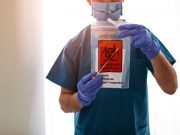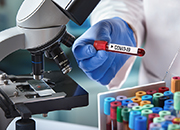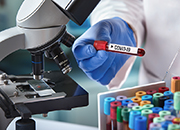Tag: Screening
Proteomic Markers May Predict Psychosis in Those at Risk
Predictive models based on proteomic biomarkers may help personalize prognosis strategies
Changes to CDC COVID-19 Testing Guidelines Trigger Concern
Guidelines changed this week and prompted concern among infectious disease professionals
U.S. Nursing Home Staff Must Be Tested Regularly for COVID-19
Long-term care facilities account for 42 percent of COVID-19 deaths in the United States
White House Blocks FDA’s Power to Regulate Lab Tests
FDA staunchly opposes the change, arguing that such authority is critical during a public health emergency
FDA: COVID-19 Test Could Give Inaccurate Results
Agency issues alert about Thermo Fisher's TaqPath genetic test
Guidance Issued for Genetic Testing in Prostate Cancer
Germline testing advised for metastatic disease, family history suggestive of hereditary disease
Smokers Less Likely to Receive Breast, Cervical, CRC Screening
Former smokers were more likely to receive regular screening services than never smokers
Guidelines Detail How to Manage Aneurysms of Visceral Arteries
Guidelines inform diagnosis, treatment options, screening, and follow-up of visceral aneurysms
Many U.S. Children Eligible for Type 2 Diabetes Screening
Sensitivity and specificity low for detecting any hyperglycemia with HbA1c, FPG screening criteria
Overscreening for Cancer Common Among Older Adults
Findings seen across cancer types, particularly for women living in U.S. metropolitan areas














